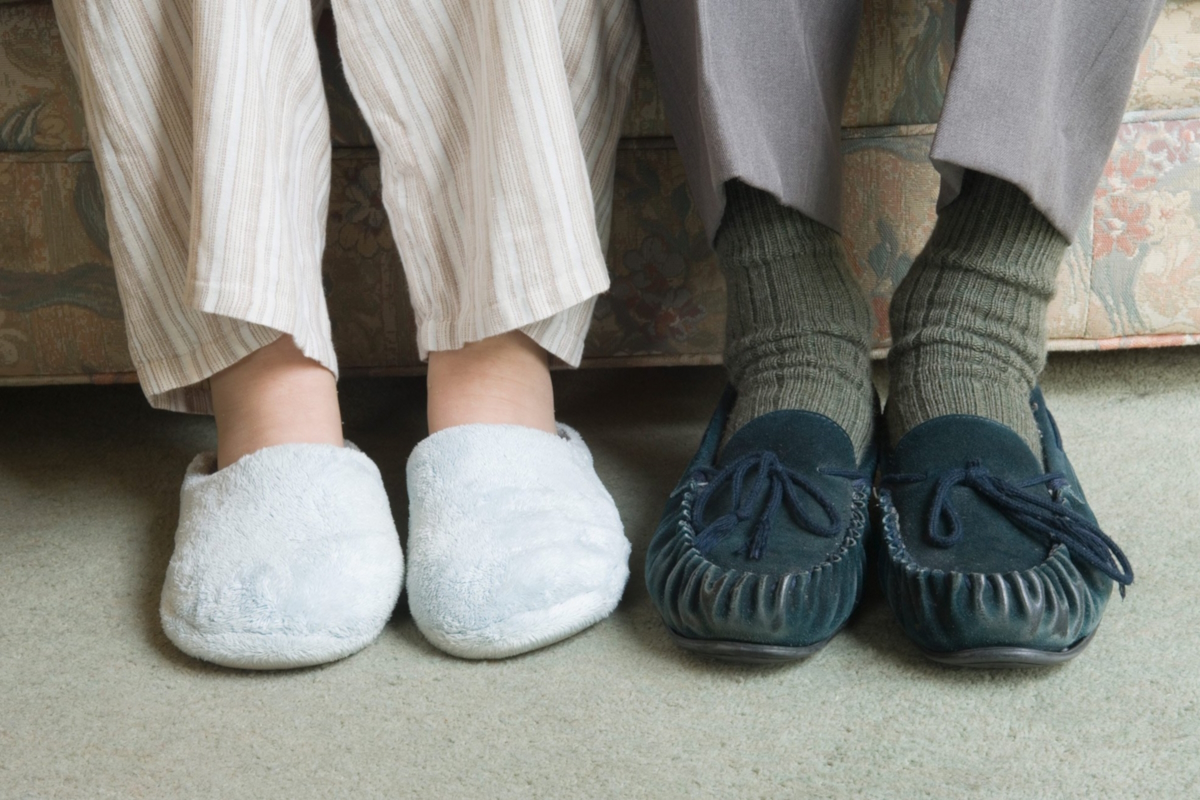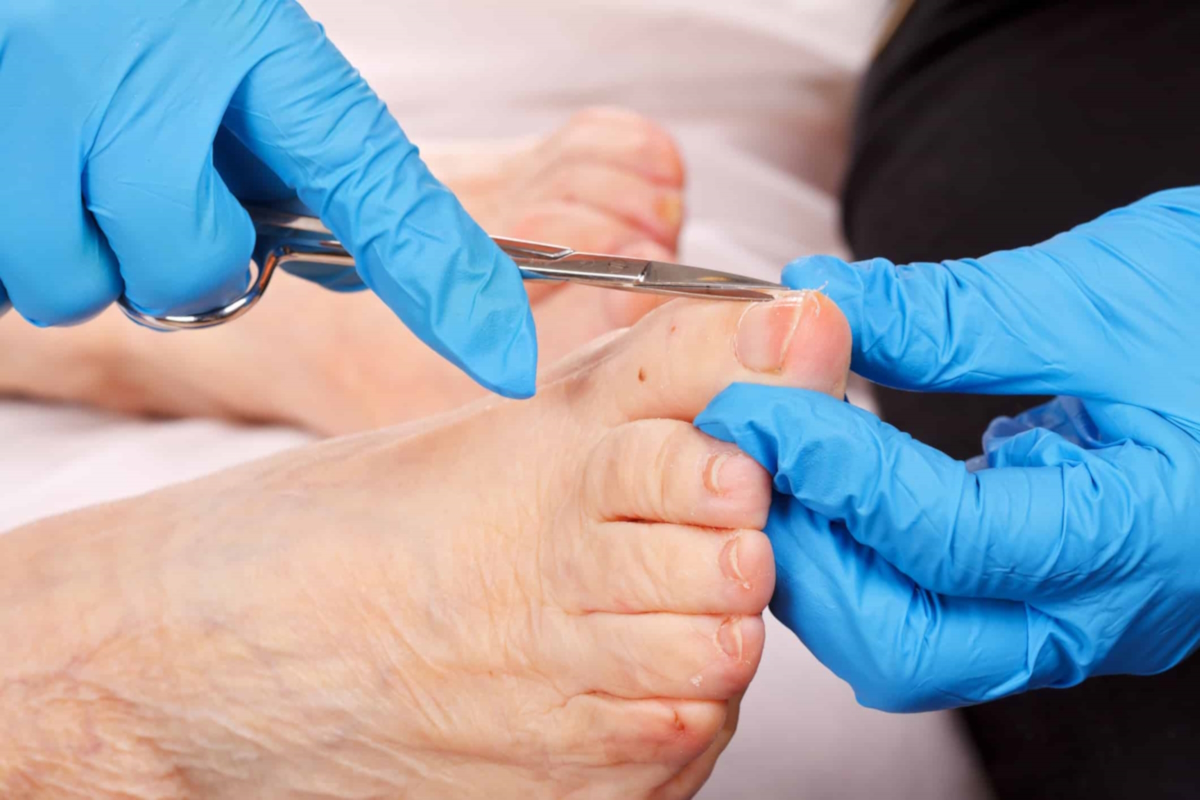9 Foot Care Tips for Seniors to Age Gracefully
Author: StrideCare Internal Team

5 Min Read
Ida* had never given much thought to foot care over the years. As a teenager and well into her young adult life, she was an avid marathoner and regularly competed all over the nation as a weekend warrior. Additionally, she and her husband would routinely spend time hiking or going on trips that involved rigorous activity. After a recent trip to her podiatrist, Ida, now in her 70s, was taken aback when the doctor reminded her of proper foot care for seniors. Whether she was ready to admit it or not, Ida was not nearly as active as she used to be. As a result, she needed to take extra precautions to ensure she could be on her feet as much as she wanted for years to come.
With 26 bones, 33 joints, and over a hundred muscles, tendons, and ligaments, our feet are the foundation for the rest of our body. They allow us to stand, walk, run, jump, dance, kick, climb, and exercise. Like other body systems, our feet need to be protected and cared for. This is especially true as we age and begin to slow down on many of the activities we used to do with ease.
Even if we may not be in any pain or do not feel limited specifically by our feet, maintaining mobility and balance is important for seniors. This starts with paying attention to foot health.

Request an appointment with a StrideCare podiatrist today. Our collaborative approach ensures you receive the support you need for optimal foot care.
Why Is Foot Care Important for Seniors?
Most adults understand the importance of proper foot care. Yet, doing the little things to ensure happy and healthy feet is rarely top of mind. A study by the American Podiatric Medical Association (APMA) reports that 77% of Americans say they have experienced foot pain. Still, only a third are diligent about protecting their feet and seeking expert care. This is an even bigger issue for older individuals. Approximately one-third of older adults experience everything from benign foot pain to stiffness, aching feet, numbness, inflammation, reduced flexibility, arthritis, and more. Some are quick to say something and seek help from a podiatrist. However, others do not say anything, are not aware of how serious their condition is, or choose to suffer in silence. Proper foot care for seniors can prevent injuries, falls, and complications from chronic diseases like diabetes and neuropathy. Optimal foot care can help you avoid many foot health issues ranging from temporary to chronic and life-altering.Are You Living With These Foot Health Issues?
- Bunions
- Warts
- Ingrown toenails
- Thickened or discolored nails
- Diabetic foot conditions
- Poor circulation
- Hammertoe
- Calluses
- Heel pain
- Plantar fasciitis
- Nerve pain
- Neuropathy
- Irritated toes and feet
- Chronic wounds
- Neuromas
- Gout
Foot care is essential for seniors. If you have any concerns about your foot health, schedule an appointment with StrideCare’s expert podiatric physicians.
Tips for Maintaining Healthy Feet for Years To Come
Your feet are amazing. That does not change the fact that they have experienced a lot of use over the years, and natural wear is expected as you age. Regular visits to a podiatrist can help you maintain proper foot care. There are also plenty of things you can incorporate into your daily routine right now—in the comfort of your own home—to help you easily maintain your foot health as you age.- Wear shoes and socks — Shoes and socks give your feet proper cushion and support and limit unnecessary pressure on specific areas of the foot. This is important no matter how old you are. Just make sure your shoes are properly fitted (not too loose, tight, or big) and support your arch type to avoid blisters, heel pain, and other foot ailments. When choosing socks, consider thick, soft cotton or wool socks for added cushion. Avoid socks with ridges or elastic tops and change your socks daily to have a clean pair.

- Avoid going barefoot — To piggyback on the previous tip, it is best for seniors to wear socks, shoes, or slippers. Avoid going barefoot, even while working around the house. Walking barefoot for any length of time places too much stress on the foot and can accelerate the formation of bunions, plantar fasciitis, etc.
- Inspect your feet daily — Cracks, cuts, redness, sores, calluses, warts, etc., can pop up when you least expect them. In fact, even a small sore on the bottom of your foot can become much more painful and life-altering if left unchecked. Sit down and visually inspect your feet. If you struggle to lift your feet high enough to see underneath them, use a mirror or ask a family member for help.
- Keep your toenails trimmed properly — The longer your toenails get, the more likely you will experience a variety of podiatric problems. These include everything from cuts and scrapes to ingrown toenails, fungal infections, hangnails, toenail breaks, and more. To properly trim your toenails and promote foot care, cut them straight across, leaving them long enough so that the corners lie loosely against the skin at the sides. The National Library of Medicine has a great illustration of how toenails should be trimmed.

- Wash your feet — While inspecting your feet, wash them in warm water and clean between your toes. When finished, ensure they are dried properly and that you change to a new pair of clean socks. Changing your socks regularly ensures your feet never get too damp from sweat.
- Moisturize your feet — Another great foot care tip for seniors is to moisturize their feet to prevent cracking, calluses, itching, and more. It is best to moisturize immediately after a bath or shower.
- Maintain a healthy weight — As you carry less weight, you are not as susceptible to circulatory problems, heel and foot pain, arthritis, and stress fractures that can eventually lead to immobility and potential issues.
- Exercise — Getting up and moving around, even if for nothing more than a brisk walk every day, is a great way to promote blood flow throughout the body. Experts suggest walking for at least 30 minutes daily to keep the heart pumping and promote improved foot health.

- Do not ignore foot pain — One of the best foot care tips for seniors is to not ignore foot pain. Occasional foot pain is one thing. Consistent pain, numbness, tingling, sores, etc., that do not resolve quickly should be evaluated by your podiatrist as soon as possible.


